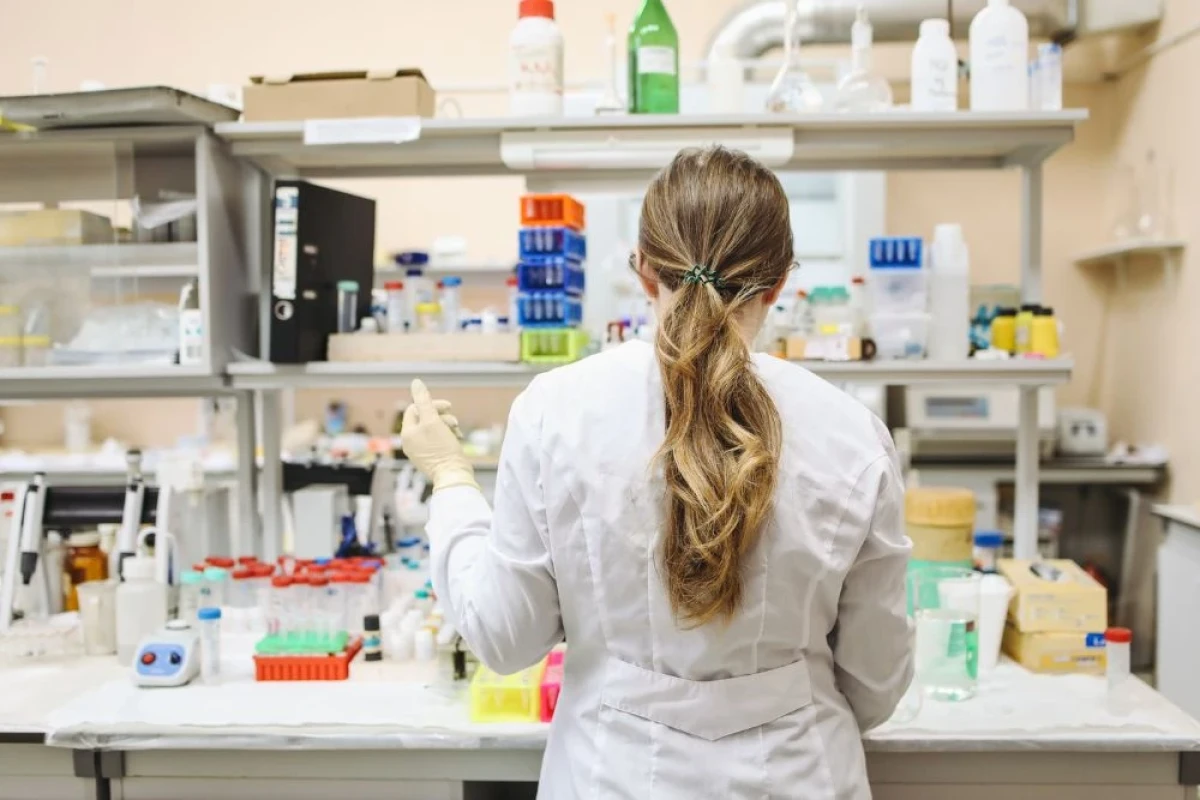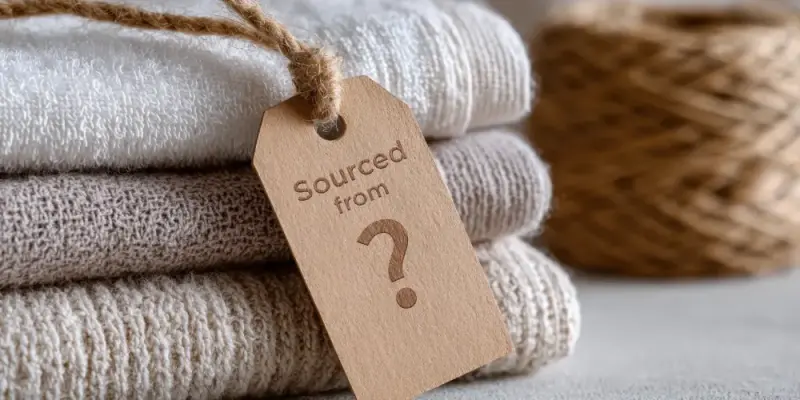Traditional Traceability vs Scientific Verification: Why Science is the Future of Supply Chain Integrity
By Dr. Kate Jones | 6 October 2023
minutes to read.

Traceability has long been a key concern for brands and retailers when sourcing products from the global supply chain. Knowing where and how your products were grown or manufactured is essential in maintaining quality, safety, and ethical standards.
In recent years, traditional traceability methods have come under scrutiny due to their limitations in capturing accurate data and detecting fraudulent practices. This challenge is especially evident in the journey of cotton fiber – from the field to fabric or finished products – where traditional methods struggle to keep up.
In a groundbreaking shift, trusted forensic science techniques, once reserved for research and criminal investigations, are now being applied to transform supply chain traceability.
By scientifically verifying the origin of raw materials and products through the direct testing of products themselves, this approach moves beyond reliance on traditional traceability systems to offer science-backed authentication to strengthen the integrity of supply chains.
This in turn can yield significant business value through enhanced brand trust, premium pricing, and consumer assurance.
Let’s dive deeper into the key differences between traditional traceability systems and scientifically verified traceability systems, and why the latter is becoming the gold standard for modern supply chain management in cotton and fashion.
Limitations of traditional traceability systems
Paper/Electronic-Based Approach
Clothing production has come a long way since the days of hand sewing and weaving. But when it comes to traceability, many brands and retailers still rely on manual or electronic record-keeping systems to track product movements in the supply chain.
Not only is this time-consuming, but it also introduces inaccuracies, delays, and inefficiencies into the supply chain.
Data manipulation, loss, or theft are also common risks associated with paper records. And, electronic systems may not always be compatible across supply chain partners, making data sharing and analysis a challenge.
Tracing Packaging, Not Products
Conventional traceability systems mainly focus on the movement of packaging or containers, rather than the products within them. As a result, important details about actual products (including their origin, composition, or quality attributes) may be missing or disconnected from the information associated with them.
This disconnect poses a significant challenge when trying to detect issues or defects at the product level. Within apparel and textile industries, this disconnect can be highly problematic when trying to confirm raw material sourcing because raw materials like cotton are often blended from different origins.
Gaps in the Supply Chain
Data-driven decision-making is not possible without comprehensive and accurate data. But traditional systems may not be capable of capturing every step in the supply chain to offer valuable insights into the supply chain's efficiency and performance.
This lack of visibility into the supply chain can lead to inefficient processes and wasted resources. For manufacturers, this can mean missed opportunities to optimize production and reduce costs. While for customers, this can lead to product shortages and delays.
Unreliable and Slow
Due to the manual nature of traditional systems, data collection and analysis can be slow and prone to errors. This delay in accessing critical information hampers quick decision-making, particularly during crises, especially when dealing with detained shipments that require due diligence records.
Such delays can result in missed delivery deadlines, lost revenue, and reputational damage. In contrast, scientific traceability provides real-time access to data and insights, enabling agility and responsiveness in the supply chain.
Scientifically Verified Traceability Systems: The Modern Solution
Testing Product, Not Packaging
Unlike traditional solutions, traceability systems that incorporate scientific verification authenticate information within the supply chain by testing the product itself.
This verification approach is differentiated from other traceability technologies in that it does not require the introduction of any external substances or tracers into the manufacturing process.
Because this approach is based on product-based testing, it ensures the preservation of the manufacturing process's integrity, granting businesses unprecedented flexibility and scalability.
A small sample of the product can be collected to verify its origin and authenticity from its relevant stage in the supply chain, offering complete transparency and trust to customers and stakeholders alike.
Brands and retailers can confidently track and showcase the cotton journey from farm to cart, providing assurance that ethical and sustainable practices were followed throughout.
Underpinned by Science: Robust and Reliable
Forensic isotopic testing is one of the most innovative scientific methods used by modern supply chains to verify the provenance and authenticity of their products.
By analyzing naturally occurring elements within a product or raw material, it creates a unique “Origin Fingerprint” that can be evaluated against a reference database to provide scientific verification and authentication of the product’s journey within the supply chain.
Unlike other traceability methods, an “Origin Fingerprint” is intrinsic to a product itself and bestowed by Mother Nature which means that it cannot be easily altered, copied, or erased.
Resistance to Fraud
Scientifically verified traceability systems offer a critical advantage over traditional traceability methods – protection against fraud. As counterfeiting and fraudulent practices become increasingly sophisticated, it’s essential for companies to adopt robust traceability solutions.
This is especially true for products with premiumization of certain sources of raw materials sch as organically grown products. These types of products that are differentiated by quality or sourcing attributes are vulnerable to contamination or substitution or blending of cheaper lower-quality alternatives for financial gain.
Conventional testing methods often fall short in effectively monitoring or mitigating these risks effectively Forensic testing, much like that used in criminal investigation, analyses the natural properties of a product to determine authenticity.
This approach does not introduce any foreign markers or tracers, making it a powerful and adaptable tool for authenticating origin and supply chain integrity.
Admissible Evidence
The Department of Homeland Security (DHS) identified isotopic testing as evidence that importers may present to potentially prove that items do not originate in Xinjiang Uyghur Autonomous Region (XUAR) or may have benefitted from forced labor.
With regulations like the Uyghur Forced Labor Prevention Act (UFLPA) in place, which require comprehensive documentation and supply chain management, it is essential for importers to have a reliable traceability system that cannot be easily manipulated.
This is also important for other regulations such as the EU Deforestation Regulation, where forensic isotopic testing can provide precise raw material origin to support EUDR compliance for leather brands.
Why scientific verification is the future of traceability
This is where scientifically verified traceability systems comes into play, providing trust grounded in forensic and science-based authentication for fashion supply chains. The choice between traditional traceability and scientifically backed traceability is more than just a matter of preference; it can impact the safety, reliability, and overall efficiency of a supply chain.
While innovations like supply chain mapping software, blockchain, or AI can enhance traditional methods, scientific verification is a critical companion for its ability to independently authenticate the integrity within these systems. This supports stronger product authentication and trust for brands and suppliers.
By incorporating a scientific verification method that relies on the intrinsic origin properties of the products themselves, companies can improve their ability to track products, detect fraud, and ensure the safety of their customers, ultimately driving growth and success in the modern supply chain landscape.
Disclaimer: The information provided in this document does not and is not intended to constitute legal advice. Instead, all information presented here is for general informational purposes only. Counsel should be consulted with respect to any particular legal situation.




